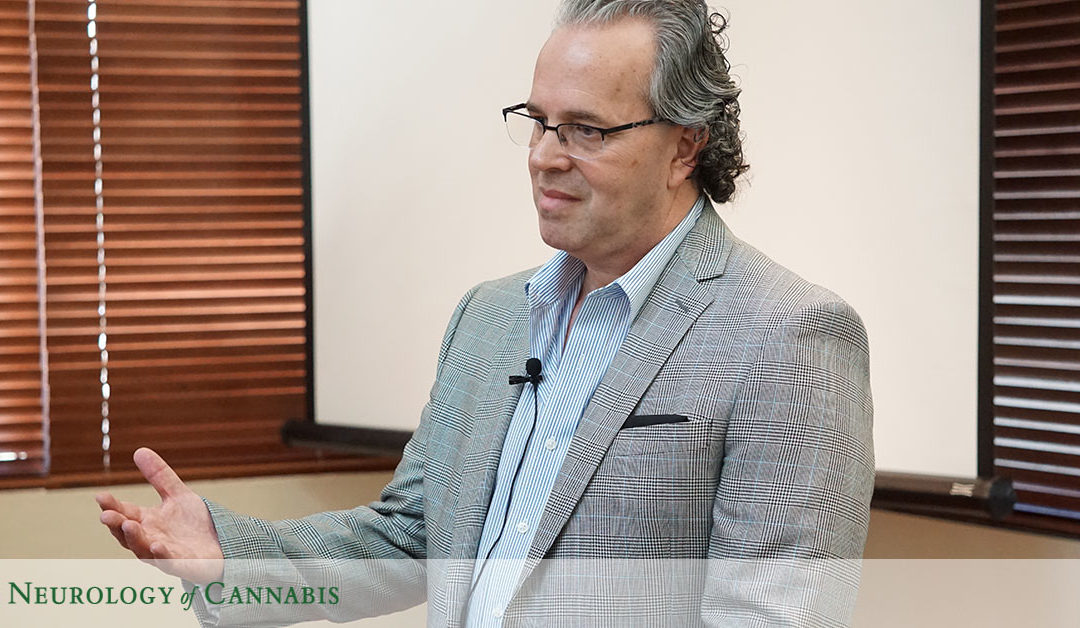CBD is short for cannabidiol, which is a chemical compound from marijuana or hemp plants. Unlike THC or tetrahydrocannabinol, CBD does not have intoxicating properties and will not produce a “high”. Anecdotal evidence of the many benefits of CBD abounds. The majority of Americans have heard of CBD, but finding the scientific research to back up the potential health benefits may take some digging. Due to cannabis prohibition in the United States most of the clinical research into the health benefits of the plant have been done in other countries.
Fast Fact: The hemp plant has a far greater concentration of CBD – and contains relatively less THC – than most marijuana varieties.
Although virtually unheard of just a few years ago, the passage of the 2018 U.S. Farm Bill confirmed the legal status of hemp-based CBD, leading to its rapid market penetration. National polling indicates that its use is rising quickly in the United States. This naturally occurring substance is used across a wide variety of products now because of its reputation for inducing a feeling of relaxation and calm serenity.
The CBD market generates over 1 billion dollars in sales annually. The figure includes products as varied as face creams and pet therapies.
Here are some key facts that those interested in CBD may find interesting:
- The most active CBD demographic is age 18-34, with 23% of individuals in that age group using CBD regularly.
- Persons between the ages of 35 and 54 are the most likely to spend their dollars on CBD, with 21% spending $100 or more on CBD products monthly.
- 40% of users across all age groups use CBD in some form at least once per week.
- 21% of users report doing so once per day.
- Nearly 1 in 3 Americans have utilized CBD type of preparation to unwind.
- 48% of Americans view CBD positively, and 84% of those who have consumed CBD view it positively overall.
The above statistics were garnered from CBD Consumer Report: Archetypes & Preferences, available from New Frontier Data.
Other Potential Health Benefits of CBD
While conventional controlled studies are scarce, small studies have given researchers insight into some of the potential long term benefits of CBD for a range of conditions.
- There is strong anecdotal evidence for CBD effectiveness as a pain reliever and inhibitor. These accounts are especially meaningful as patients and medical professionals look for non-opioid based pain relief options. Given the alarming rate of opioid abuse and the virtual non-existence of CBD addiction, CBD could be life-changing for many people. In the meantime, many physicians will suggest topical, or other forms of CBD treatments to their patients in order to combat pain.
- A small study published by the journal of Addictive Behaviors showed that smokers who took CBD while trying to quit smoked 40% less than those who received a placebo, pointing to the fact that CBD may be useful in overcoming nicotine addiction.
- CBD is a both a plentiful source of fatty acids and known for anti-inflammatory, making it the current darling of the skincare industry. From acne to anti-aging, dermatologists are touting its many benefits for healthy, glowing skin. Interestingly there is a high density of cannabinoid receptors in the skin and therefore these anecdotal reports ‘make sense’ in scientific terms.
- A University of California at San Diego study is currently underway to establish if CBD can be useful in treating autism. Because CBD interacts with the body and positively affects homeostasis, its ability to support the brain’s role in reward processing and social behavior is being considered.
As CBD studies are brought to bear, we expect to see more positive proof that the this naturally occurring substance may be helpful to our overall health and well-being.

